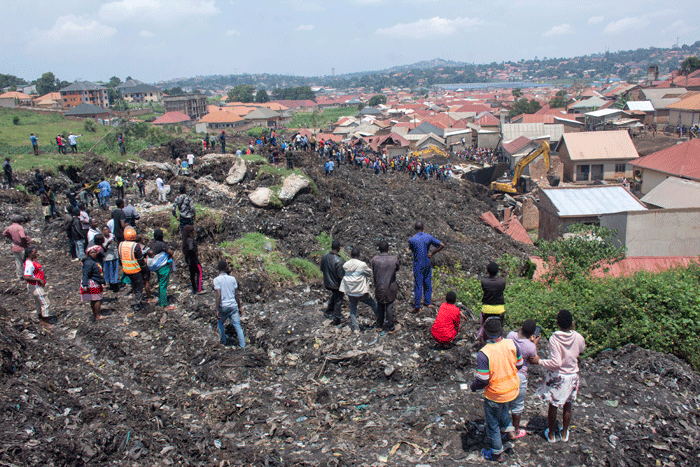The four faces behind anti-corruption march

What you need to know:
- The organisers have used social media and other platforms to encourage Ugandans to join the protest to Parliament.
With just five days to the scheduled anti-corruption march to Parliament on July 23, four individuals have embarked on mobilising Ugandans for a peaceful demonstration despite police warning.
The organisers have used social media and other platforms to encourage Ugandans to join the protest against increasing corruption in Parliament.
However, police say the motive is unclear and that it could attract wrong elements that could harm Ugandans.
The organisers, nevertheless, told the Daily Monitor yesterday that they had sought police clearance through a July 12 letter, a copy of which this paper has seen.
In the letter to the Inspector General of Police (IGP), the leaders of the demonstration said they notified the police under Section 5 of the Public Order Management Act, 2013 (POMA), which requires an organiser of a public meeting to inform an authorised officer of the intention to hold a public meeting.
The march, expected to involve 100 participants, is scheduled to take place from 8am to 6pm. The day’s programme includes an assembly at the Railway Grounds in Kampala for speeches, followed by a march to Parliament.
“We ask the police to ensure equal treatment and preserve law and order before, during, and after the public meeting. We particularly ask you to provide security for both the participants and other members of the public and identify an appropriate traffic flow plan to facilitate the procession,” the letter to the IGP reads in part.
The mobilisers of the demonstration, aged between 25 and 30 years, said the protest would occur nationwide.
Who are the organisers?
One of them is Ms Shamim Nambassa, an intern pharmacist at Yumbe Regional Referral Hospital and the 87th guild president of Makerere University.
She explains that the youth have tried all avenues to demand better services without success.
“The situation in Uganda is worsening in terms of service delivery, while we see leaders misusing money. This march is one of the few options left and is our right,” Ms Nambassa says.
The other is Mr George Victor Otieno, a law student, who says he has always been passionate about social justice. He reveals that the demonstration is a collection effort. “Our efforts are fueled by the frustration and commitment of countless Ugandans who have witnessed firsthand the devastating impact of systemic corruption,” he says.
Mr Otieno denies receiving international funding to destabilise the country, countering claims made by Mr Chris Obore, Parliament’s communications director.
In an opinion piece published in yesterday’s edition, Mr Obore said the regime change protagonists, having exhausted all strategies to bring down the Ugandan government and failed, have impressed upon their funders a new idea to demonise and mobilise common anger against Parliament.
“Chris Obore’s statements are laughable and hold no weight. Even if we were to entertain his baseless claims of international funding—which are false—he cannot erase the undeniable truth that sparked our call for action. The issues we raise are glaringly obvious, and our desire for change is driven by a genuine concern for our nation,” Mr Otieno says.
He explains that their goal is for Speaker of Parliament Anita Among to resign for what he alleges is her role in perpetuating a corrupt system and suppressing debate on vital issues.
Also part of the group is Mr Kennedy Ndyamuhaki, a journalist, and tech startup founder. “This is a people-driven movement. We believe in peaceful protest and hope the police will respect our rights,” he says.
Ms Praise Aloikin Opolose, a law student, says the demonstration will be peaceful and calls on the police to protect citizens exercising their right to protest.
What police say
When contacted, police spokesperson Kituuma Rusoke confirmed that the IGP’s office had received the letter and would issue a communication in due course. “The IGP received the letter and he will act accordingly, so let’s wait for a communication from the IGP,” Mr Rusoke said in a telephone interview.
“Demonstrations are a way of expressing grievances. We as police only intervene when people become uncontrollable or have ulterior motives,” Mr Rusoke noted.





